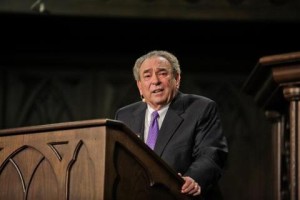 Article – Dr. Michael Horton – Countdown to Reformation Day: Do we need a new Reformation? (original source Christianity became entangled with the vines of superstition, ignorance, and spiritual lethargy—the same thing we see all around us today.
Article – Dr. Michael Horton – Countdown to Reformation Day: Do we need a new Reformation? (original source Christianity became entangled with the vines of superstition, ignorance, and spiritual lethargy—the same thing we see all around us today.
When Luther uncovered the theological scandal, the fragile Roman scaffolding began to creak. The essentials of the Reformation were doctrinal. It was part of the Renaissance to call for a return to the original sources, so it made sense that Christian scholars returned not only to the great classics of Western civilization and to the early fathers but to the Biblical text itself. So, the Reformation was the greatest back-to-the-Bible movement in the history of the church since the death of the apostles. But, they went back to the Bible not simply as an end in itself but in order to recover the essential truths that the Bible proclaimed and that the church had either forgotten or actually rejected. Those essentials were Scripture alone, Christ alone, grace alone, faith alone, and to God alone be glory.
Now notice how the modifier “alone” appears in each of these slogans. After all, the medieval church still believed in Scripture, in Christ, in grace, in faith, and in God’s glory. [The] church had never denied these articles of faith and has in fact forbidden others to do so. It was that word “alone” that brought Rome and the Reformers into conflict. Scripture is the only ultimate authority in faith and practice. Christ is the only mediator between God and sinners. Faith is the only instrument of our justification, and God is the only one in this whole business who deserves any credit or praise from beginning to finish. These slogans formed the core of the Reformation.
Do you believe that the Reformation got these doctrines out of balance with other doctrines as the Roman church believed? Or do you believe that the Bible teaches that we are saved by grace alone through faith alone because of Christ alone to the glory of God alone, and that this is the Bible’s central message from Genesis to Revelation? If it’s the Bible’s central message, then it must be essential for us as it was for the Reformation in the sixteenth century. [The] problem is [that] we’re facing a church today that is even in a worse situation than that of the medieval church.
Now just look at each of those slogans in the light of today’s realities. First of all, the so-called evangelical, Bible-believing Christians in America are supposedly the spiritual heirs of the Protestant Reformation, and yet according to their responses to recent surveys, their views are actually much closer to those of medieval people before the Reformation.
The battle cry “Scripture alone” is rarely heard even in these conservative Protestant churches today as pop psychology, marketing and management principles, pragmatism, consumerism, sociological data, and political crusades tend to have the greatest authority and weight in the churches.
“Christ alone” is challenged by the voices of those who are following our culture of religious pluralism, insisting that Jesus is the best, but not the only way to the Father. In fact, two-thirds of the Evangelical Christians in America said that we all pray to the same God whether we’re Buddhists, Muslims, Jews, or Christians—two-thirds.
“Grace alone” has fallen prey once more to the moralism and self-confidence of the human heart. The popular phrase in the medieval church was God will not deny his grace to those who do what lies within their power. A modern equivalent is God helps those who help themselves; and according to a Barna survey, 87 percent of today’s Evangelical Christians—the heirs of the Reformation—affirm that medieval Roman Catholic conviction.
And as for the Reformation battle cry “faith alone,” which was the central concern, how far has the preaching of justification by faith alone fallen from the priorities of the modern evangelical church as the major centers of evangelical power have now publicly acknowledged that the doctrine of justification by faith alone no longer presents any obstacle to fellowship with those who deny it? Evangelical seminary professors now freely attack the doctrine by which, as the scriptures teach, the church stands or falls.
And as for the slogan “To God alone be glory,” well, religion today is human-centered rather than God-centered. We see it in worship; we see it in every facet in evangelism. Once again, even the churches are focused on how God can make us happy and fulfilled.
Folks, we are very interested in the Reformation not because it’s a thing that happened in the past but because we’re the same stew. We’re not slavishly devoted to the sixteenth-century Reformation; they made mistakes just as we will, but we do believe that it was the single greatest recovery of apostolic Christianity since the death of the apostles themselves. By God’s grace, they returned God’s Word to the stage in all of its authority, conviction, grace, and redemption, bringing that long-awaited renewal to the body of Christ that so many had sought through more superficial avenues. And we’re right at that place now where everybody’s seeking renewal and revival through all of the avenues that were pursued before the Reformation, before they got to the doctrinal and theological heart of the crisis.
(Michael Horton, “Do We Need a New Reformation?” White Horse Inn Broadcast)

